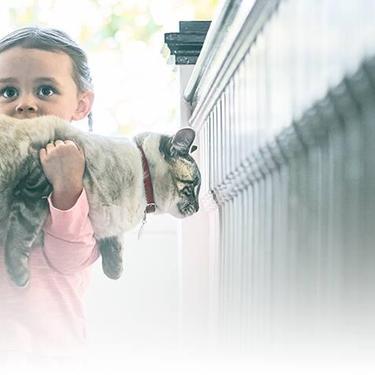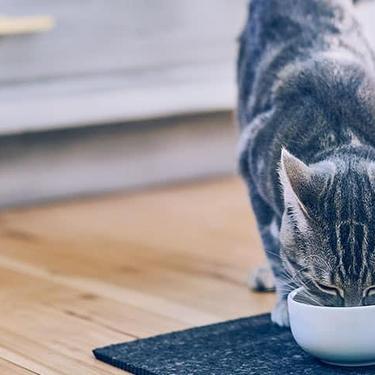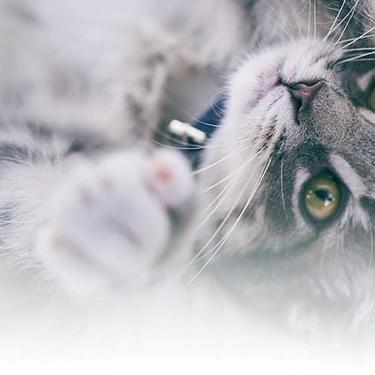
-
Find the right food for your petTake this quiz to see which food may be the best for your furry friend.Find the right food for your petTake this quiz to see which food may be the best for your furry friend.Health CategoryFeatured products
 Adult Light Large Breed Chicken Meal & Barley Recipe Dog Food
Adult Light Large Breed Chicken Meal & Barley Recipe Dog FoodFewer calories for less active large breed dogs
Shop Now Adult Large Breed Chicken & Barley Recipe Dog Food
Adult Large Breed Chicken & Barley Recipe Dog FoodSupports healthy joints, lean muscle, and beautiful coat for large breed dogs
Shop Now Hill's Science Diet Adult Healthy Mobility Large Breed Chicken Meal, Barley & Brown Rice Recipe Dog Food
Hill's Science Diet Adult Healthy Mobility Large Breed Chicken Meal, Barley & Brown Rice Recipe Dog FoodAdvanced nutrition shown to support joint health and improve mobility
Shop NowFeatured products Adult Perfect Digestion Chicken, Barley & Whole Oats Recipe Cat Food
Adult Perfect Digestion Chicken, Barley & Whole Oats Recipe Cat FoodHill's Science Diet's breakthrough nutrition supports ultimate digestive well-being & healthy microbiome
Shop Now Adult Oral Care Chicken & Brown Rice Recipe Cat Food
Adult Oral Care Chicken & Brown Rice Recipe Cat FoodClinically proven kibble technology to reduce plaque & tartar build-up
Shop Now Kitten Healthy Cuisine Tender Chicken & Rice Medley
Kitten Healthy Cuisine Tender Chicken & Rice MedleyDelicious tender chicken and rice in a mouthwatering sauce with precisely balanced nutrition to support 5 essential building blocks for lifelong health
Shop Now -
DogCat
- Cat Tips & Articles
-
Health Category
- Weight
- Skin & Food Sensitivities
- Urinary
- Digestive
- Kidney
- Dental
- Serious Illness
-
Life Stage
- Kitten Nutrition
- Adult Nutrition
Featured articles Cat vs. Dog: Which Is the Best Pet for Me?
Cat vs. Dog: Which Is the Best Pet for Me?Learn about important differences between dogs and cats, such as cost & space considerations. These factors can help you decide which pet is best for you.
Read More Adopting a Pet: What You Need to Know
Adopting a Pet: What You Need to KnowLearn the basics of adopting a pet, including where to begin and common questions you should ask yourself when deciding which kind of pet is best for you.
Read More Fun Ideas for Kids and Pets This Summer
Fun Ideas for Kids and Pets This SummerOutdoor summer activities with your dog or cat can be fun for kids, too. Learn how they also teach kids responsibility & creates a bond with their pet.
Read More -


Thinking about becoming a first-time pet parent to a cat? Congratulations!
Chances are you like cats, but before adopting your first feline friend, ask yourself, "Do I love cats? Am I a cat person? How do I know?" Check out these three questions that cat people usually identify with.
1. Do You Understand Cats?
One of the first steps to determine if you're a cat person is to spend time with other pet parents. Visit with several cat-parent friends so you can meet cats of various breeds and personalities. Visiting your friends' cats is a great way to find out if you're allergic to cats. If you are, don't despair. Proper grooming and allergy medicine can make owning a cat manageable, but be sure to consult with your doctor before you decide to adopt.
It's also a good idea to visit your local animal shelters to find the right fit for you. At the shelter, you'll learn about the personalities, energy levels, socialization skills and individual quirks of the cats and kittens up for adoption. You'll be able to play and bond with the animals, too, which really helps in the decision-making process.
Ask your friends important questions about cat ownership, such as the amount of time it takes to groom the cat, what responsibilities go along with owning a cat and how much money they spend on food, accessories and health care each month.
It is important to know that cats are wonderful pets, but they are also individual creatures. They might not be the most affectionate pets to start out your relationship, so it is important to know this before adopting. Having lots of patience and understanding your cat's personality will help you get along with her better and avoid getting frustrated that she seems distant.


Tasty Tips
2. Are You Able to Invest?

You have to be in a sound financial position to provide for your kitty. In addition to basics like cat food, dishes, a litter box and litter, toys, a collar with a tag and veterinary check-ups, you need to factor in other costs, emphasizes Vetstreet. "When you're calculating costs to decide whether or not you can afford a cat, make sure to factor in payments for routine [veterinary care], a budget for emergencies, and the cost of pet insurance, if you elect to purchase it." Research costs of services in your area to help with your budget.
When you become a pet parent, you not only make a financial investment but an emotional one, too.
If you travel frequently or are busy and distracted while at home, you may not be ready to be a pet parent. Petcha explains that while cats can entertain themselves during the day, they do get bored and will experience loneliness, separation anxiety and stress if their humans are absent frequently and/or are away for long stretches. Cats are self-sufficient pets to a degree (for example, you don't have to rush home during your lunch hour to let them out for a potty break), but you shouldn't leave them alone for extended periods.
Cat ownership also requires extreme patience and understanding. Whether you bring home a kitten or an adult cat, there will be an adjustment period where you'll learn each other's personalities, habits, and routines. Cats do weird things sometimes, such as bolting across the room for no reason or staring at the wall, but don't worry — it's just what they do.
There are also headaches to parenting a cat that you need to ask yourself if you're ready to handle. Cleaning litter boxes, dealing with occasional scratches, early morning wake-up calls and dead-mouse presents are just some of the things that come with being a cat parent. You need to be able to provide your cat with love and affection through all of the difficult times too.
3. Are You Willing to Share?
Another "Am I a cat person?" point to ponder is that you must be comfortable sharing your things because your new kitty will take over your couch, your favorite chair, and your bed. Your things are no longer your own! You may have to rearrange your home to accommodate your furry friend. Remember cats need things like cat beds, scratching posts, cat trees, and more — all of which requires space.
And because a cat will make your home her home, you must create a safe space for your new furry friend. Take a cat's-eye tour of your home, to identify potential hazards for a cat, including loose cords and wires, poisonous plants and flowers, delicate and breakable items, and choking hazards like string, ribbon, thumbtacks and coins. Preparing for a cat is a lot like baby-proofing, and if you have children it's important to educate them on how to live safely with a cat too.
Perhaps the most important question you have to ask yourself is, "Am I in this for the long haul?" Cats can live up to 20 years and older, and you're their world. Your fur baby depends on you to keep her healthy, safe, secure and happy.
If you can answer yes to these three questions, then you're a cat person! We wish you and your future cat best friend all the best.


Christine O'Brien is a writer, mom, and long-time cat parent whose two Russian Blues rule the house. Her work also appears in Care.com, What to Expect, and Fit Pregnancy, where she writes about pets, pregnancy, and family life. Find and follow her on Instagram and Twitter @brovelliobrien.
Related products

Delicious roasted chicken and rice in a mouthwatering sauce

Clinically proven kibble technology to reduce plaque & tartar build-up

Hill's Science Diet's breakthrough nutrition supports ultimate digestive well-being & healthy microbiome

Delicious tender chicken and rice in a mouthwatering sauce with precisely balanced nutrition to support 5 essential building blocks for lifelong health
Related articles

Provide the best possible treatment for cats with sensitive skin by spotting the signs, knowing the causes, and understanding the remedies. Learn more now.

Understand the symptoms of a chronic upset stomach in your cat, and learn how to help sooth their discomfort.

Get helpful information on proper feline oral healthcare and why it's so vital to take care of your cat's teeth.

Obesity affects more than 30 percent of cats in America. Learn how you can properly feed and exercise your cat to improve its weight management.

Put your cat on a diet without them knowing
Our low calorie formula helps you control your cat's weight. It's packed with high-quality protein for building lean muscles, and made with purposeful ingredients for a flavorful, nutritious meal. Clinically proven antioxidants, Vitamin C+E, help promote a healthy immune system.
Put your cat on a diet without them knowing
Our low calorie formula helps you control your cat's weight. It's packed with high-quality protein for building lean muscles, and made with purposeful ingredients for a flavorful, nutritious meal. Clinically proven antioxidants, Vitamin C+E, help promote a healthy immune system.

